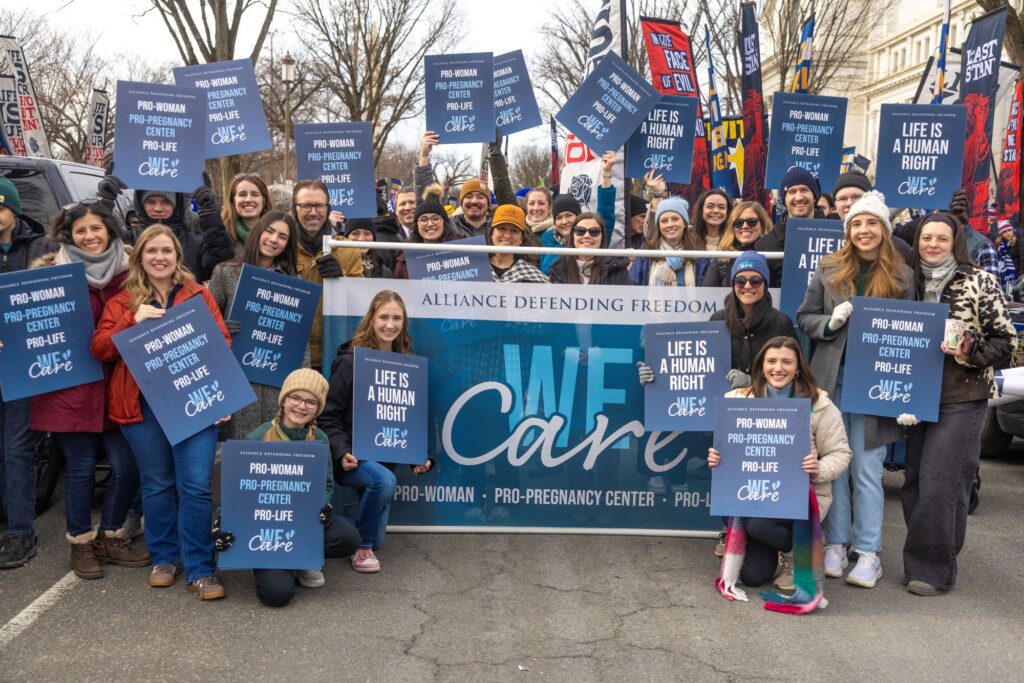
Imagine a group of Christian parents coming together around an idea. Their children are approaching school age, and they have serious concerns with the local public schools. They begin the arduous process of creating a new school—one dedicated to academic excellence and spiritual formation.
They go through all the necessary steps to make their idea a reality. They find suitable space to rent. They get the green light from the local zoning board. They hire teachers and recruit students. They retain lawyers to incorporate the new school, obtain tax-exempt status from the IRS, and explain relevant laws and regulations. They decide not to participate in any of the very few federal programs available to K-12 schools because of the burdensome and entangling strings attached.
Then, out of the blue, the federal government tells them they must comply with a host of laws and regulations applicable to recipients of “federal financial assistance.” These laws impose significant compliance burdens and potentially interfere with their religious freedom.
Shocked, they explain that they’ve never taken a dime of federal money. In response, the feds say, “But you’re tax-exempt. That’s no different than getting a government check. Start complying with these laws immediately or lose your tax-exempt status.”
That scenario could become widespread under recent federal court decisions holding that tax-exempt status is “federal financial assistance” and thus triggers multiple laws that have never applied to most nonprofits.
The Safeguarding Charity Act would put a stop to this. Introduced in both chambers of Congress in January, the bill would declare what has always been true: that tax-exempt status is not “federal financial assistance” and thus does not trigger laws applicable to those receiving such aid.
It would free countless nonprofits—including houses of worship—from burdensome obligations Congress never intended to impose on them. It would prevent the IRS from taking away their tax-exempt status if the government says they violated one of these laws.
What laws are we talking about? The list includes:
- Title IX of the Education Amendments of 1972 (sex discrimination by education programs or activities receiving federal financial assistance)
- Section 504 of the Rehabilitation Act of 1973 (disability discrimination by all recipients of federal financial assistance)
- Title VI of the Civil Rights Act of 1964 (discrimination based on race, color, and national origin by all recipients of federal financial assistance)
- The Age Discrimination Act of 1975 (age discrimination by all recipients of federal financial assistance)
- Section 1557 of the Affordable Care Act of 2010 (discrimination based on sex, disability, race, color, national origin, and age by health programs or activities receiving federal financial assistance)
These laws don’t just prohibit certain actions. They impose all sorts of affirmative compliance obligations, such as recordkeeping, reporting, self-evaluations, giving federal bureaucrats access to their buildings and files, modifying facilities, and more.
And these laws and their implementing regulations aren’t simple. The Department of Education recently issued two proposed Title IX rules that together are 819 pages long! The Department of Health and Human Services’ proposed Section 504 rule runs 400 pages. The Department of Justice’s Title VI legal manual is 138 pages long.
Expecting small nonprofits with few staff to read, understand, and obey all these complex and ever-changing rules and regulations is unfair. And taking away their tax-exempt status would be profoundly unjust.
ADF is grateful to Sen. Marco Rubio and Rep. Greg Steube of Florida for introducing the Safeguarding Charity Act in the Senate (S. 3604) and House (H.R. 7027), respectively. Both versions of the bill have attracted co-sponsors and are pending in committees.
To preserve the effectiveness of America’s nonprofits, Congress needs to enact—and President Biden needs to sign—the Safeguarding Charity Act.






